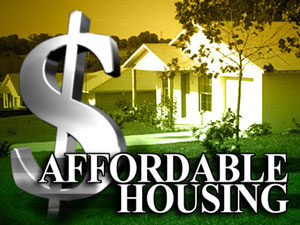“Look at how we are uprooted and displaced from the cities in which we live. Using the tools of poverty, gangs, drugs and weaponry, there is a plot to move Blacks out of the inner cities so that Whites can move back in. The cities are devastated to the point that when enough people move out, when enough buildings are vacated or destroyed, the developers move in and create a new reality out of the ghettoes, and reap huge profits in doing so. A new reality sets in with fine homes and condominiums and paved streets and prospering businesses for White people. This is called urban renewal, or gentrification.” –The Honorable Minister Louis Farrakhan in “A Torchlight for America,” 1993.

NEW YORK (FinalCall.com) – “Gentrification is the housing policy of the United States,” stated Professor Neil Smith, director of the Center for Place, Culture & Politics at the CUNY Graduate Center. Mr. Smith’s remarks were recorded in an Amsterdam News story covering the first Harlem Anti-Gentrification Conference held June 1. The professor said that this policy was not an accident, adding, “and it’s not just about the displacement of African Americans.”
“He is right, it’s as much about classism, as it is about race,” Nellie Bailey, director of the Harlem Tenants Council, and brains behind the conference told The Final Call. When told about Min. Farrakhan’s remarks in his book, Ms. Bailey said that he is correct, and what is happening in Harlem is the “spatial re-structuring of the inner-city of New York City through population removal.”
“Rent subsidy’s are being eliminated–throwing Blacks and Latinos out of Harlem–to allow a White gentry to re-emerge,” insists Ms. Bailey.
Ms. Bailey said she sees a growing activism emerging in NYC to fight the onslaught against affordable housing.
On May 23, hundreds of New York tenants-–Black, Latino and White–from across the city gathered in lower Manhattan to form a human chain around two rent-regulated housing complexes to demonstrate the need to protect affordable housing. The rally’s participants are a part of an ongoing citywide-campaign known as “New York is Our Home,” to organize New Yorkers to fight to preserve affordable housing.
“Between 2002 and 2005, NYC lost more than 200,000 apartments for tenants making $35,000 or less as median rents increased almost 9 percent across the city, while the average household income actually dropped by more than 6 percent,” according to a statement from the Working Families Party (WFP). “Over the next 10 years, the city will lose more than 250,000 affordable units to decontrol, and inadequate funding for public housing–making it impossible for low-income and middle-class New Yorkers to live in NYC,” the WFP added.
The Community Service Society (CSS) just released its report on the state of affordable housing, “Closing the Door 2007; The Shape of Subsidized Housing Loss in New York City.” The report says that between 1990 and 2006, more than a quarter (27 percent) of the city’s 119,785 apartments in the subsidy programs had been lost, with another 18 percent now being threatened with subsidy loss.
“The rapid loss of New York City’s supply of affordable rental housing threatens the ability of low-wage families to live in the city. Yet, no level of government has produced a coherent policy response to this looming crisis,” writes CSS President & CEO David Jones in his weekly newspaper column.
Ms. Bailey says that tenants and activists must forge alliances and establish a united front in the fight to make housing affordable for New Yorkers. “We have to build partnerships in this fight,” she stressed.
Professor Bill Sales of Seton Hall University and a long-time Harlem activist stated at the conference: “Gentrification is an integral part of the development of the capitalist system.”
We must teach people how to access the necessary tools to fight back, stated Ms. Bailey. “The conference was the first step in the process of analyzing the subject of affordable housing, and how things such as gentrification play a part in the process. And then we must develop an agenda of resistance,” she noted.
Organizing for affordable housing has paid off in Baltimore, according to a June 12 story in the Baltimore Sun. On June 11, the Baltimore City Council passed a bill that requires developers to set aside 20 percent of affordable units if their projects receive city tax breaks. According to the news article, the bill’s passage “represents a hard-fought victory” for a coalition of the city’s religious groups, housing advocacy groups and unions.












